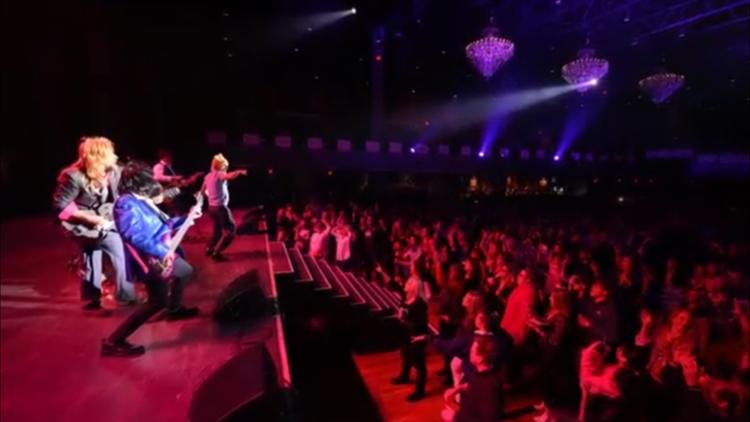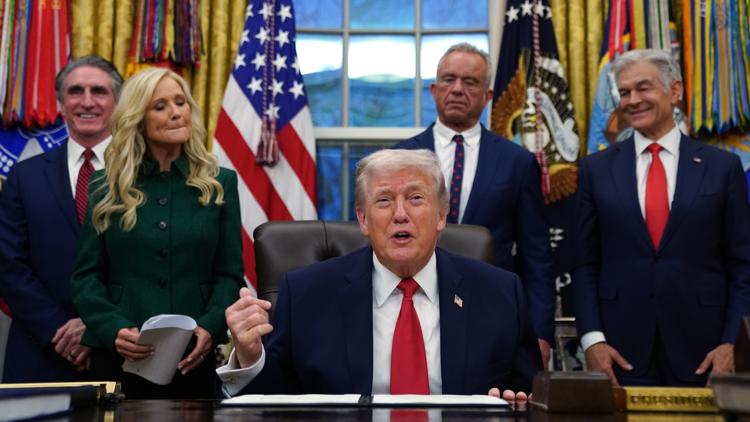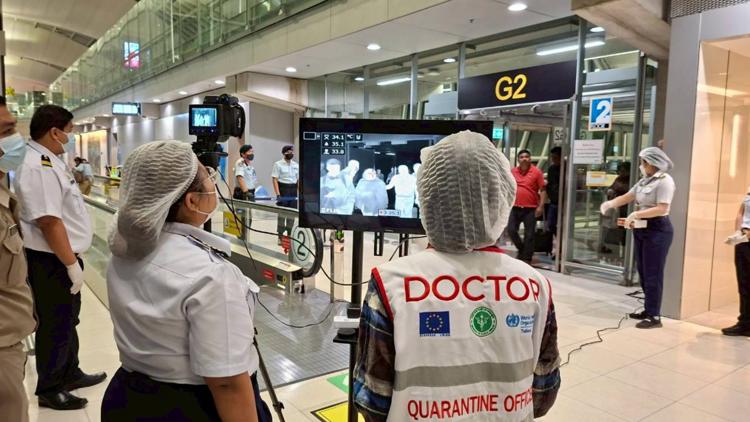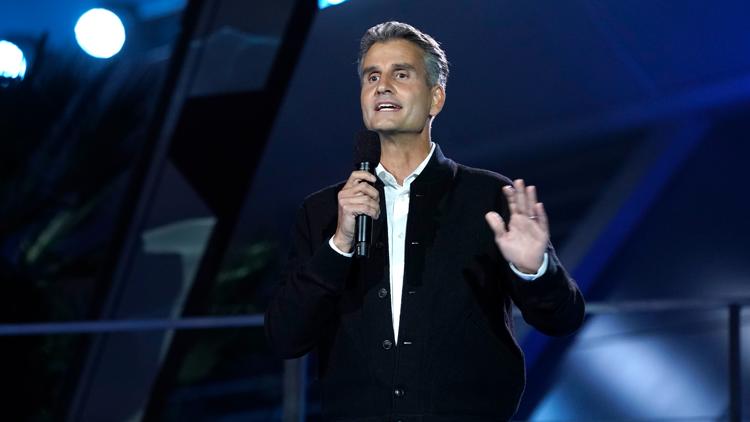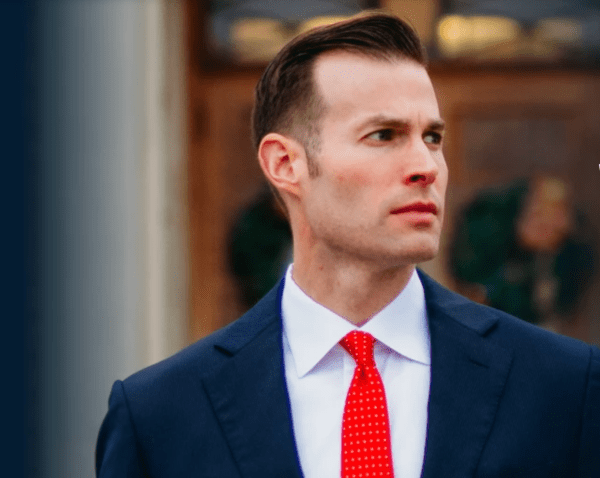Putin, Netanyahu challenge Trump’s projection of 'peace through strength'
President Trump has appeared sidelined this week as the Gaza and Ukraine wars expand into allied countries, posing one of the biggest tests yet to his motto of "peace through strength." Israeli Prime Minister Benjamin Netanyahu kept Trump in the dark over his country's strikes in Qatar, and the president’s frustration with Russian President Vladimir...

President Trump has appeared sidelined this week as the Gaza and Ukraine wars expand into allied countries, posing one of the biggest tests yet to his motto of "peace through strength."
Israeli Prime Minister Benjamin Netanyahu kept Trump in the dark over his country's strikes in Qatar, and the president’s frustration with Russian President Vladimir Putin did nothing to deter a Russian military incursion into Poland.
Trump's response to these escalations will be watched closely, as Poland summons NATO members for a meeting about how the alliance responds to what it calls an intentional act of war, and Qatar, a key U.S. ally in the Middle East, demands retaliatory measures against Israel.
Trump said he was “very unhappy” with Israel’s strikes into Qatar and, responding to Russia’s incursion into Poland, questioned Russia’s “violation” in a Truth Social post, adding “Here we go!”
Ukrainian Foreign Minister Andrii Sybiha called for both Europe and the U.S. to increase pressure on Moscow “without delay” by ending Russia’s war financing and scaling up Ukraine's air defenses.
“It’s not the time for weak responses; they can only encourage further aggression. It’s time for peace through strength and real action,” he wrote on the social platform X.
Trump has put a high priority on ending the war between Israel and Hamas and Russia’s war against Ukraine, but the resulting actions in both cases appear to be a slap in the face to the president’s efforts.
“I think what we're seeing here is the ramifications of the Trump administration not really having a strategy to achieve peace in either conflict,” said Jennifer Kavanagh, senior fellow and director of military analysis at Defense Priorities, a Washington-based think tank.
“In both cases, the answer is the same, which is we should be doubling down on diplomacy, and that means recognizing that it will be a long process, and we’re not seeing that.”
Democrats seized on the perception of Trump appearing ineffectual on the international stage.
“Bad news for you Donald Trump, the Nobel Peace Prize is slipping away from your grasp,” Senate Minority Leader Chuck Schumer (D-N.Y.) said Wednesday. “Crises over the last 24 hours have escalated to dangerous levels and President Trump, you seem to be leading from behind.”
Sen. Ruben Gallego (D-Ariz.) sought to counter Trump’s constant refrain that Putin would not have invaded Ukraine if he was president in 2022.
“An attack on a NATO country by Russia has only happened under one President,” Gallego posted on X, referring to the drones shot down over Poland. “This happened because he is weak and Putin knows that he can manipulate Trump.”
Israel’s strike on Hamas officials in Doha has upended Trump’s attempts, only days earlier, to revive a ceasefire and hostage release deal, occurring without any heads-up to the U.S. It has also stoked new tensions between the U.S. and an ally, Qatar.
Trump said Tuesday he was “very unhappy” with the attack.
“Obviously this is a point of tension between the U.S. and Israel and Israel feels it's going to act on its own, against U.S. wishes, or counter to U.S. ongoing diplomatic efforts without notification,” Dan Shapiro, who served as deputy assistant secretary of Defense for the Middle East during the Biden administration, said in an interview with BBC.
“The question is if this actually increases the possibility of getting the negotiations back on track and advancing them towards a deal — that’s the prime minister's claim — or, what I fear, it endangers the lives of the remaining hostages who are alive, and makes it harder to get to an endpoint where they can come home and the war can come to an end.”
In the case of Russia, the incursion into NATO territory demonstrates how the Kremlin is willing to push the boundaries against NATO while at the same time escalating its attacks on Ukraine.
House Foreign Affairs Committee Chair Brian Mast (R-Fla.) said he believed Putin was testing NATO’s resolve, calculating it would only result in “talk among NATO members,” who fear Russia’s potential nuclear response to further escalation.
“The U.S. and our allies should not fall for it,” Mast said.
Sen. Lindsey Graham (R-S.C.) said Congress is poised to pass punishing sanctions on Moscow as soon as the president gives the green light.
Polish officials said Russia deliberately targeted NATO territory, pointing out the scale, at least 19 drones, was the largest incursion by far since the war started. Ukrainian President Volodymyr Zelensky said the Ukrainian air defense forces destroyed more than 380 drones of various types while also helping Poland and NATO respond to the Russian incursion.
The Russian attack, occurring early Wednesday morning local time, followed one of Russia’s most devastating attacks on Ukraine on Sunday, with more than 800 drones deployed in conjunction with 13 missiles, according to Ukrainian officials. In Kyiv, a mother and her 3-month-old baby were killed, and 17 people were injured.
Earlier this week, Sen. Jeanne Shaheen (D-N.H.) and outgoing Sen. Thom Tillis (R-N.C.), co-chairs of the Senate NATO Observer Group, criticized Trump for imposing soft deadlines on Putin and moving to halt $225 million in military funding for Baltic states, which form the front line of NATO’s defense against Russia.
“The message this sends is dangerous: that the United States is pulling back just as the stakes in Ukraine and for NATO’s security are at their highest. Our adversaries are taking note that they can wait out American support—that does not make America safer,” the senators wrote.
“America must not hand Putin an advantage; the cost of inaction to America’s security is too high.”
Tillis represents a rare exception among Republicans, who have largely held back criticism of Trump’s approach to foreign conflicts.
Sen. Joni Ernst (R-Iowa), who will not seek reelection, said she believes Trump does have influence over Putin and Netanyahu, adding “we’ve only been brought to this point because President Trump is pushing them.”
“I’d love to see peace, especially in Ukraine, what’s going on, but we’ve got to get President Putin in a position where he’s being crushed. Which is why we’re pushing to move on that sanctions bill,” she said.
Republicans are raising pressure on Europe to join their sanctions efforts, which includes tariffs on China and increased tariffs on India over their purchase of Russian oil.
“If we're going to put sanctions, Europe needs to do the same thing,” Sen. James Lankford (R-Okla.) told The Hill.
“Europe needs to stop buying Russian oil, Europe needs to be able to impose the same sanctions to be able to align with us as well, that’s a lot of the back-and-forth right now with the State Department to try and get that together.”
While the European Union is readying a 19th package of sanctions, Hungary, France, Slovakia, Belgium and Spain maintain imports of Russian oil. European Commission chief Ursula von der Leyen said Wednesday the EU is considering a faster phaseout of Russian fossil fuels.
What's Your Reaction?







